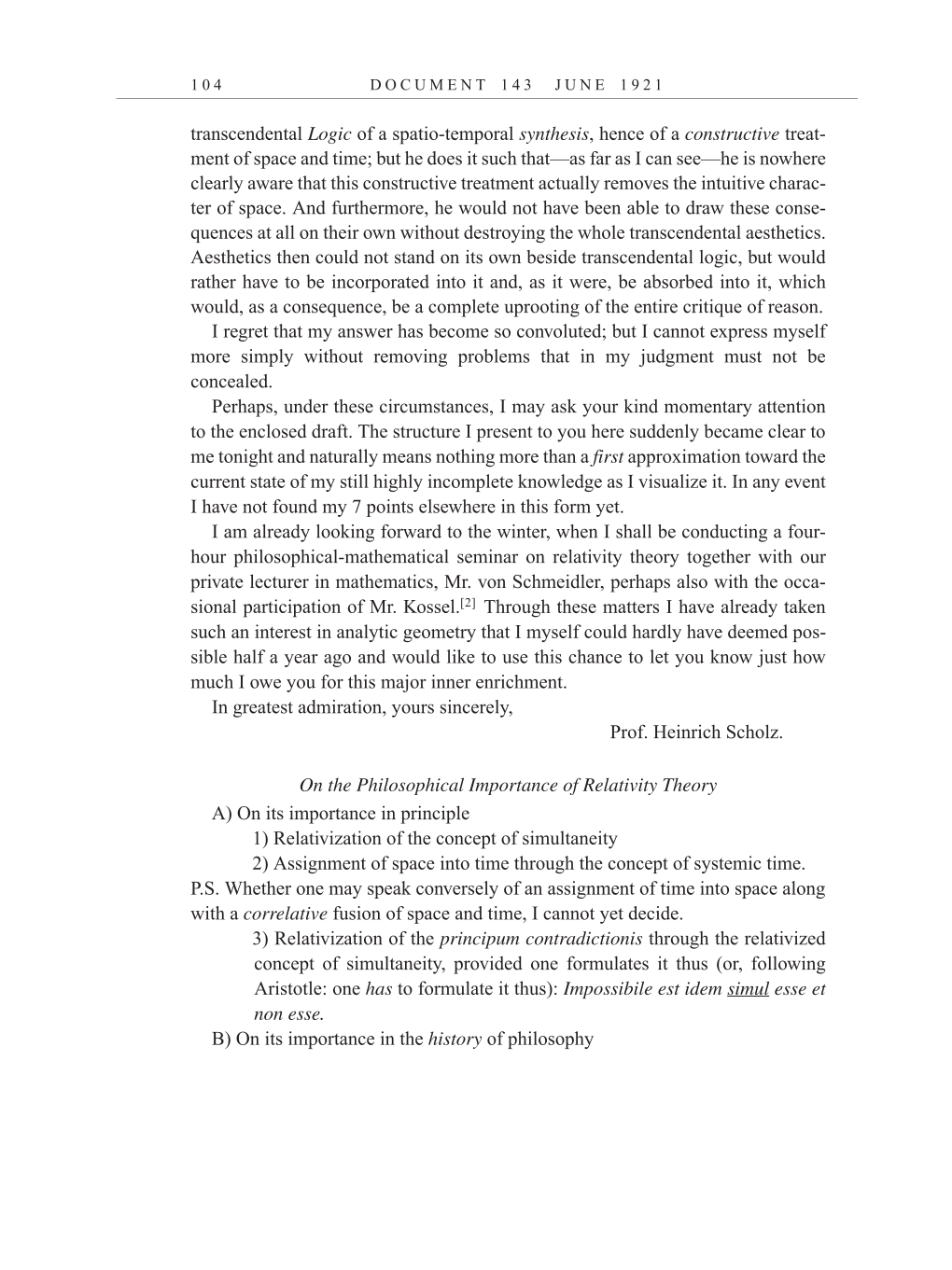1 0 4 D O C U M E N T 1 4 3 J U N E 1 9 2 1
transcendental Logic of a spatio-temporal synthesis, hence of a constructive treat-
ment of space and time; but he does it such that—as far as I can see—he is nowhere
clearly aware that this constructive treatment actually removes the intuitive charac-
ter of space. And furthermore, he would not have been able to draw these conse-
quences at all on their own without destroying the whole transcendental aesthetics.
Aesthetics then could not stand on its own beside transcendental logic, but would
rather have to be incorporated into it and, as it were, be absorbed into it, which
would, as a consequence, be a complete uprooting of the entire critique of reason.
I regret that my answer has become so convoluted; but I cannot express myself
more simply without removing problems that in my judgment must not be
concealed.
Perhaps, under these circumstances, I may ask your kind momentary attention
to the enclosed draft. The structure I present to you here suddenly became clear to
me tonight and naturally means nothing more than a first approximation toward the
current state of my still highly incomplete knowledge as I visualize it. In any event
I have not found my 7 points elsewhere in this form yet.
I am already looking forward to the winter, when I shall be conducting a four-
hour philosophical-mathematical seminar on relativity theory together with our
private lecturer in mathematics, Mr. von Schmeidler, perhaps also with the occa-
sional participation of Mr.
Kossel.[2]
Through these matters I have already taken
such an interest in analytic geometry that I myself could hardly have deemed pos-
sible half a year ago and would like to use this chance to let you know just how
much I owe you for this major inner enrichment.
In greatest admiration, yours sincerely,
Prof. Heinrich Scholz.
On the Philosophical Importance of Relativity Theory
A) On its importance in principle
1) Relativization of the concept of simultaneity
2) Assignment of space into time through the concept of systemic time.
P.S. Whether one may speak conversely of an assignment of time into space along
with a correlative fusion of space and time, I cannot yet decide.
3) Relativization of the principum contradictionis through the relativized
concept of simultaneity, provided one formulates it thus (or, following
Aristotle: one has to formulate it thus): Impossibile est idem simul esse et
non esse.
B) On its importance in the history of philosophy
